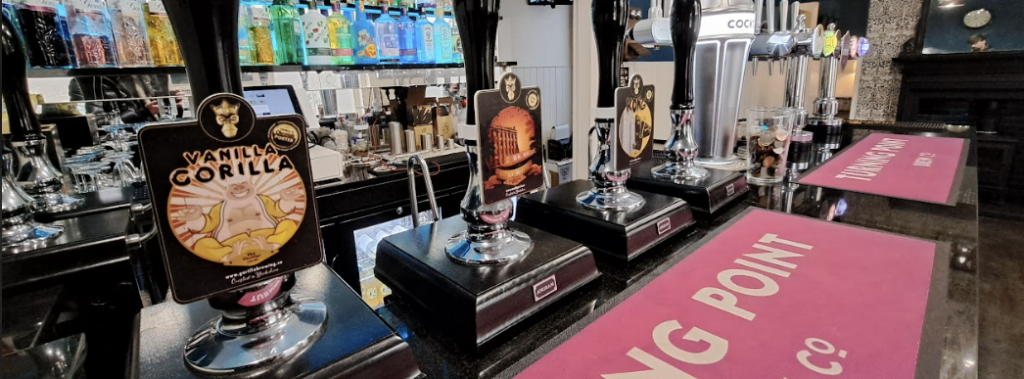Dry trains & drinking alcohol on-board trains
You’re able to responsibly consume alcohol on most trains in Great Britain. There are some exceptions, though. Let’s take a look at what dry trains are and which operators don’t allow you to drink on their trains and stations.
What are dry trains?
A train where you can’t bring any alcohol on-board is known as a dry train. This is usually based on intelligence from the British Transport Police and from railway staff intelligence. This usually happens for one of the following reasons:
- A large event is anticipated, where large groups of people drinking could cause discomfort to, or jeopardise the safety of, other passengers
- The stretch of line or individual rail service is known for regular anti-social behaviour incidents
The British Transport Police might search you before you board one of these trains to make sure that you’re not carrying alcohol. There normally aren’t any exceptions to this rule. On these trains, it won’t be possible to buy alcohol, either.
How do I know if I’m travelling on a dry train?
Some trains and sections of line are always ‘dry’. Here’s a summary of the known services where you can’t drink on-board at all times.
If you’re travelling on ScotRail, Merseyrail, London Overground or the Elizabeth Line, then you cannot drink or carry an open container of alcohol on any of their services. If you have any alcohol on you, it’ll need to stay sealed and out of sight.
On other operators, the following services are dry trains:
Grand Central
- 18:45 York to Sunderland (Saturdays only)
- 21:23 York to Sunderland (Saturdays only).
LNER
- 09:52 Aberdeen to Newcastle (Fridays only)
Northern
All of the services below are ‘dry’ on Saturdays only:
- 19:44 Whitby to Middlesbrough (March to October)
- 19:23 Newcastle to Carlisle (all year)
- 21:25 Newcastle to Carlisle (all year)
- 19:09 Carlisle to Whitehaven (all year)
- 20:00 Carlisle to Whitehaven (all year)
- 21:06 Carlisle to Whitehaven (all year)
- 21:49 Carlisle to Whitehaven (all year)
- 21:43 Manchester Piccadilly to Stoke-on-Trent (November and December).
The same restrictions may apply on a Bank Holiday Sunday. You should check with Northern before you travel.
Transport for Wales
All trains between Pontypridd and Merthyr Tydfil are ‘dry’.
What about one-off dry trains?
If an operator plans to make a train ‘dry’, they need to advertise it first. This usually means giving everyone at least 48 hours notice by advertising it online, as well as at stations.
You should check with your operator before you travel, especially if you’re planning to attend a large event.
Is there anything else I should know?
Remember, these rules are about making train travel safe. You could be refused boarding if staff don’t think you’re in a fit state to travel.
If you drink when you’re on a dry train, then this could be an offence under the railway bylaws. If you’re found guilty, you could be prosecuted.
Should you fancy a drink (and you’re not using a dry train, of course), then make sure you do it responsibly. Alternatively, why not support your local station pub? We’ve written about our favourite station pubs, and they can be a great place to relax before your train.

Are you planning a trip soon? We’d recommend booking your tickets with Railsmartr. We don’t charge any booking fees, and we don’t charge any other fees, either. If your ticket is refundable and you don’t want to travel, that’s no problem.
If it isn’t refundable, you can travel at a different time. All you need to do is book a new ticket, send us all of your details and we’ll sort out the rest.
All information provided on this page is issued in good faith. It was correct as of 14th June 2023 and can change at any time. You should always follow the instructions of staff and authorised officers. Railsmartr are not responsible for any loss or inconvenience incurred as a result of the information provided.